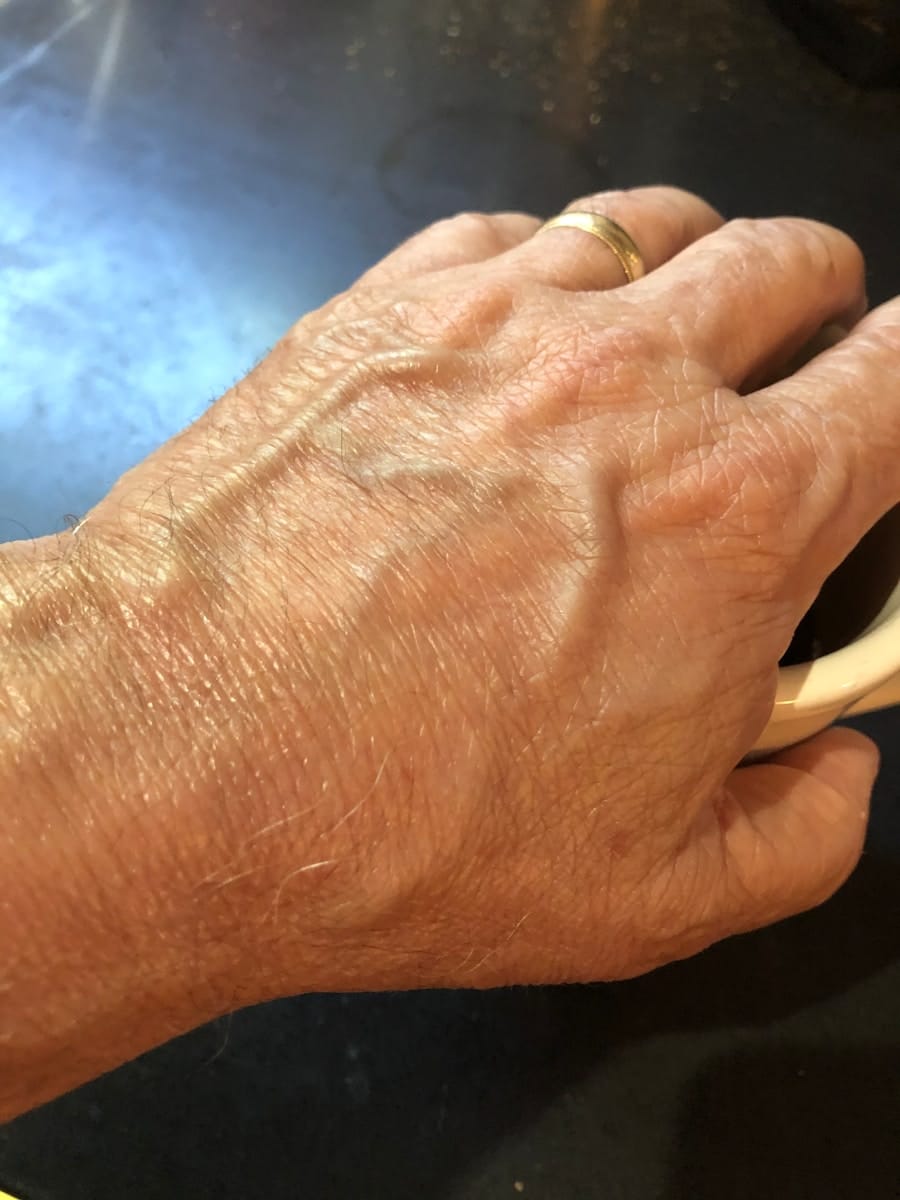Arthritis is a term that encompasses over 100 different conditions affecting the joints, leading to pain, stiffness, and inflammation. If you have ever experienced joint discomfort, you may have a glimpse of what arthritis entails. The most common types include osteoarthritis and rheumatoid arthritis, each with distinct causes and symptoms.
Osteoarthritis typically arises from wear and tear on the joints over time, while rheumatoid arthritis is an autoimmune disorder where your immune system mistakenly attacks the synovium, the lining of your joints. Understanding these differences is crucial for recognizing how arthritis can impact your daily life. The effects of arthritis extend beyond mere physical discomfort.
You may find that your ability to perform everyday tasks diminishes as joint pain and stiffness set in. Simple activities like walking, climbing stairs, or even gripping objects can become challenging. This decline in mobility can lead to a cycle of inactivity, which may further exacerbate joint issues and contribute to weight gain, increasing stress on your joints.
The emotional toll can be significant as well; chronic pain often leads to feelings of frustration, anxiety, and depression. Recognizing the multifaceted impact of arthritis on both physical and mental health is essential for seeking effective treatment and support.
Key Takeaways
- Arthritis is a common condition that causes joint pain and inflammation, impacting mobility and quality of life.
- Remicade is a biologic medication that targets the immune system to reduce inflammation and slow joint damage in arthritis patients.
- Side effects of Remicade may include increased risk of infections, infusion reactions, and liver problems, among others.
- Alternative treatment options for arthritis relief include physical therapy, acupuncture, and dietary changes to reduce inflammation.
- Natural remedies and lifestyle changes such as exercise, weight management, and stress reduction can help improve joint health and manage arthritis symptoms.
The Role of Remicade in Arthritis Treatment
How Remicade Works
Remicade is designed to inhibit tumor necrosis factor-alpha (TNF-alpha), a substance in the body that contributes to inflammation. By blocking this inflammatory pathway, Remicade can help reduce swelling and pain in the joints, allowing individuals to regain some of their lost mobility.
Benefits of Remicade
For many individuals living with arthritis, Remicade has been a game-changer. Symptoms can improve significantly within weeks. Remicade can provide substantial relief from the debilitating effects of arthritis.
Administration and Treatment Plan
Remicade is typically administered through an intravenous infusion, which means it is received in a healthcare setting. The frequency of these infusions can vary based on the individual’s specific condition and response to treatment. It is essential to have open discussions with a healthcare provider about how Remicade fits into the overall treatment plan.
Limitations and Side Effects of Remicade

While Remicade can be highly effective for many individuals, it is not without its limitations and potential side effects. You may experience some adverse reactions during or after the infusion, such as headaches, nausea, or fatigue. In some cases, more severe side effects can occur, including an increased risk of infections due to the suppression of your immune system.
It’s crucial to be vigilant about any signs of infection, such as fever or unusual fatigue, and report these to your healthcare provider promptly. Moreover, not everyone responds to Remicade in the same way. Some individuals may find that their symptoms do not improve significantly or that they experience a return of symptoms after a period of relief.
This variability can be frustrating and may lead you to explore other treatment options. Additionally, long-term use of Remicade raises concerns about potential complications, including the risk of certain cancers or liver problems. Therefore, regular monitoring by your healthcare team is essential to ensure that the benefits outweigh the risks.
Link: Mayo Clinic – Infliximab (Intravenous Route) Side Effects
Alternative Treatment Options for Arthritis Relief
If you are seeking alternatives to Remicade or other conventional treatments for arthritis, there are several options available that may provide relief. Nonsteroidal anti-inflammatory drugs (NSAIDs) are commonly used to manage pain and inflammation associated with arthritis. Over-the-counter options like ibuprofen or naproxen can be effective for mild to moderate pain.
However, if you find that these medications do not provide sufficient relief, your doctor may prescribe stronger NSAIDs or other pain management strategies. Physical therapy is another valuable alternative that can help improve joint function and reduce pain. A physical therapist can work with you to develop a personalized exercise program tailored to your specific needs and limitations.
This approach not only helps strengthen the muscles around your joints but also enhances flexibility and range of motion. Additionally, occupational therapy can assist you in finding ways to adapt daily activities to minimize strain on your joints, making it easier for you to maintain an active lifestyle despite arthritis.
Natural Remedies and Lifestyle Changes for Joint Health
In addition to conventional treatments and therapies, many individuals turn to natural remedies and lifestyle changes for managing arthritis symptoms. You might consider incorporating anti-inflammatory foods into your diet, such as fatty fish rich in omega-3 fatty acids, leafy greens, nuts, and berries. These foods can help combat inflammation at a cellular level and may contribute to overall joint health.
Staying hydrated is equally important; drinking plenty of water helps maintain joint lubrication and supports overall bodily functions. Regular physical activity is another cornerstone of joint health that you should prioritize. Engaging in low-impact exercises like swimming or cycling can help keep your joints flexible without putting excessive strain on them.
Additionally, maintaining a healthy weight is crucial; excess weight places additional stress on weight-bearing joints like the knees and hips. By adopting a balanced diet and an active lifestyle, you can create a supportive environment for your joints while potentially reducing the severity of arthritis symptoms.
Emerging Therapies and Medications for Arthritis Management

As research continues to advance in the field of arthritis treatment, several emerging therapies and medications show promise for managing this complex condition. One area of focus is Janus kinase (JAK) inhibitors, which are oral medications designed to target specific pathways involved in inflammation. These medications offer an alternative for individuals who may not respond well to traditional biologics like Remicade or who prefer an oral option over injections or infusions.
Another exciting development is the exploration of regenerative medicine techniques, such as stem cell therapy and platelet-rich plasma (PRP) injections. These therapies aim to harness the body’s natural healing processes to repair damaged tissues in the joints. While still in the experimental stages for many conditions, early studies suggest that these approaches may provide significant relief for some individuals with arthritis.
Staying informed about these emerging therapies can empower you to discuss new options with your healthcare provider as part of your ongoing treatment plan.
Integrative Approaches to Arthritis Relief: Combining Conventional and Alternative Methods
An integrative approach to arthritis management involves combining conventional medical treatments with alternative therapies for a more holistic strategy. You might find that this combination allows you to address both the physical symptoms of arthritis and its emotional impact more effectively. For instance, while you may be taking medications like Remicade or NSAIDs for pain relief, incorporating practices such as acupuncture or yoga can enhance your overall well-being.
Mindfulness practices like meditation or deep-breathing exercises can also play a significant role in managing chronic pain associated with arthritis. By reducing stress levels and promoting relaxation, these techniques can help you cope better with the emotional challenges that often accompany chronic conditions. Collaborating with a healthcare team that understands both conventional medicine and alternative therapies can help you create a comprehensive plan tailored specifically to your needs.
Finding the Right Arthritis Treatment Plan for You
Navigating the world of arthritis treatment can feel overwhelming at times, but finding the right plan for you is essential for managing your symptoms effectively. Start by having open conversations with your healthcare provider about your specific condition, lifestyle preferences, and treatment goals. They can help guide you through various options—whether it’s medications like Remicade, physical therapy, or alternative remedies—ensuring that you make informed decisions based on evidence-based practices.
Remember that managing arthritis is often a journey rather than a destination; what works for you today may need adjustment tomorrow as your condition evolves. Regular follow-ups with your healthcare team will allow you to monitor your progress and make necessary changes along the way. By taking an active role in your treatment plan and exploring various options available to you, you can empower yourself to live a fulfilling life despite the challenges posed by arthritis.
If you are interested in learning more about supplement effectiveness for joint health, you may want to check out the article Latest Studies and Findings on Supplement Effectiveness. This article provides valuable information on the latest research and studies regarding the effectiveness of supplements in promoting joint health. It can be a helpful resource for those looking for alternative treatments to manage arthritis symptoms.
FAQs
What is Remicade and why are alternatives sought for arthritis relief?
Remicade is a medication used to treat various autoimmune diseases, including rheumatoid arthritis. However, some individuals may seek alternatives due to side effects, cost, or lack of effectiveness.
What are some common alternatives to Remicade for arthritis relief?
Common alternatives to Remicade for arthritis relief include other biologic medications such as Humira, Enbrel, and Rituxan, as well as non-biologic disease-modifying antirheumatic drugs (DMARDs) like methotrexate and sulfasalazine.
What are the potential benefits of seeking alternatives to Remicade for arthritis relief?
Seeking alternatives to Remicade for arthritis relief may offer individuals the opportunity to find a medication that is more effective for their specific condition, has fewer side effects, or is more affordable.
What are some factors to consider when exploring alternatives to Remicade for arthritis relief?
When exploring alternatives to Remicade for arthritis relief, individuals should consider factors such as their specific type of arthritis, medical history, potential side effects, cost, and the method of administration (e.g., injection vs. infusion).
How can individuals determine the most suitable alternative to Remicade for their arthritis relief?
Individuals should work closely with their healthcare provider to determine the most suitable alternative to Remicade for their arthritis relief. This may involve discussing their medical history, conducting tests, and weighing the potential benefits and risks of different medications.






